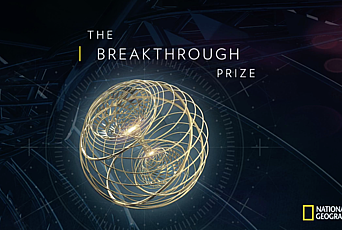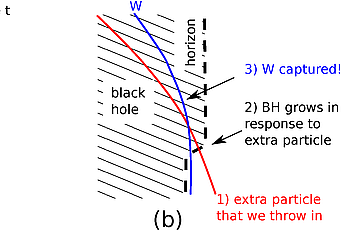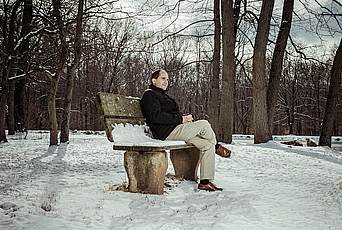
Douglas Stanford Named to “Science News” 2018 List of Trailblazing Scientists
Douglas Stanford, Member in the School of Natural Sciences, has been named by Science News as one of 10 “Scientists to Watch,” based on the work and bold ideas he has brought to theoretical physics. The list of groundbreaking scientists recognizes early- and mid-career scholars, age 40 or under, who are shaping the science of the future.
At the Institute, Stanford’s studies are focused on quantum gravity, quantum field theory, and string theory. He has worked on the AdS/CFT description of black hole interiors and the relationship to chaotic dynamics in quantum field theory. His research has revealed new insights into the chaotic nature of black holes, providing profound new insights on quantum chaos and its relation to gravity.
Stanford and theoretical physicist Stephen Shenker, a past Visitor in the School and current professor at Stanford University, showed how even the slightest changes to a black hole—such as adding a single electron—can drastically shift how the black hole behaves.
“It’s one particle and a huge, ginormous black hole,” Stanford says. “But that minuscule change alters the Hawking radiation the black hole emits, like a butterfly flapping its wings and redirecting a distant sailboat.”
Stanford has developed these ideas through collaboration with world-renowned scholars, including Juan Maldacena, Carl P. Feinberg Professor in the School of Natural Sciences, and is regarded by colleagues as a powerful and meticulous thinker.
Speaking to Science News, Maldacena said that working with Stanford made him feel like a student again. “He corrected my mistakes and gave me good ideas.”
Shenker adds “It’s possible that he is one of those rare individuals [who] will really change the direction of science. I look forward to seeing whether I’m right.”
Science News staff selects the 10 featured scientists, each of whom are nominated by a Nobel laureate or recently elected member of the National Academy of Sciences. The scholars chosen come from different backgrounds and fields of study but share in common a thirst for knowledge and a drive to grasp the unknown.
Read more at Science News.


